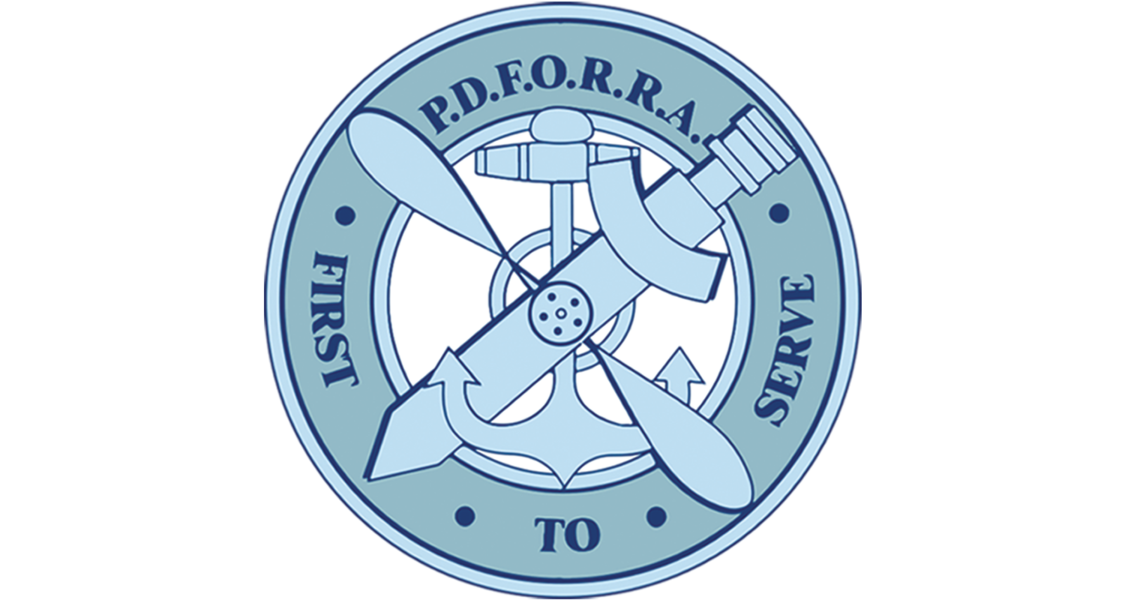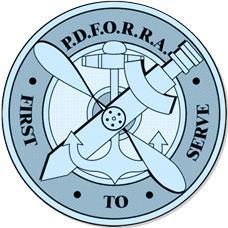Sean O'Riordan: All our military personnel want is to be treated fairly

It’s hardly surprising, given their recent experience of unequal treatment in pay negotiations, that both representative associations in the Defence Forces — which represent more than 90% of the country’s military — are seeking union representation at national pay talks through associate membership of the umbrella body ICTU.
In an era of geopolitical and military uncertainty worldwide, it may be very foolish if our politicians don’t wake up, especially as the Defence Forces are the poorest paid of all public servants.
That had been made clear to Government members when President Michael D Higgins, commander in chief of the Defence Forces, told PDForra’s annual conference in Killarney last October that every person who wants to be represented by a trade union should have that right.

Newly-commissioned officers in step as the 97th Cadet Class and 11th Potential Officers Class paraded earlier this month at Collins Barracks, Dublin. Picture: Colin Keegan/Collins
Minister for Defence Simon Coveney was sitting in the room that night. He has said he was “keeping an open mind” on such affiliation. The fact that he hasn’t decided, many months on, is causing increasing frustration across the Defence Forces.
PDForra, the largest representative association in the Defence Forces — with 6,500 members representing enlisted personnel across the army, naval service, and air corps — has long sought a seat at national pay talks.
It won a ruling at a European Court in 2018 that it should be given the right to union affiliation; a right which has been recognised and implemented by a number of other EU countries for their military personnel, such as Denmark, Holland, Belgium, Germany, and Sweden.
Irish military law, however, dictates that this cannot happen without consent of the minister for defence.
It was always considered that PDForra would take a more militant stance. But what really has thrown the cat among the pigeons is the overwhelming vote by the officer corps to follow suit and seek associate membership with ICTU.
Their representative organisation, the Representative Association of Commissioned Officers (Raco), which has 1,100 members, is traditionally viewed as more conservative. As representatives of military leaders, this is hardly a surprise and mirrors armies worldwide.
 Conor King, general secretary of Raco speaking at their conference last year when the officers' representative body took the step of calling for the right to trade union representation.
Conor King, general secretary of Raco speaking at their conference last year when the officers' representative body took the step of calling for the right to trade union representation. However, what came as a surprise is the vote their members took was so overwhelmingly in favour of associating with ICTU, so they could also get some representation at national pay talks.
I have covered Raco conferences for many years. In the early days of the association, anybody who even muttered such a thought would have received stiff resistance from colleagues.
In the past five or six years, it might have been mentioned in the back halls of their annual conferences. Slightly more tolerance would have ensued.
However, Raco started to change its approach a couple of years ago, due to the frustration felt by its members as a result of the ever increasing retention crisis in the Defence Forces and the refusal of the department and military leadership to deal with the issue.
Raco then set a more abrasive agenda, informing the media and politicians who would listen about what their members were enduring to protect the State at home while also serving on continuous and arduous overseas peace-keeping missions, where they were overstretched.
 The Air Corps, the Naval Service and the Army were all involved in this Irish Defence Forces counter terrorism exercise in Dublin Port. File picture
The Air Corps, the Naval Service and the Army were all involved in this Irish Defence Forces counter terrorism exercise in Dublin Port. File picture At Raco’s annual conference late last year, and for the very first time, delegates started to debate the pros and cons of seeking associate membership of ICTU.
Younger officers in particular spoke in favour of the move. Indeed, there was very little, if any, adverse reaction among even many of the older delegates to advancing the case.
This was reflected when the results of a ballot on the issue emerged earlier this week, which revealed that 85% had voted in favour of the ICTU move.
There’s little doubt this is as a direct result of their protestations about the failure to deliver commitments in Government plans, failure to resource the military’s conciliation and arbitration scheme properly, and a refusal by military management to implement the European Working Time Directive.
Some officers are having to work up to 70 hours a week, double and treble-jobbing to fill gaps that have occurred, in part due to colleagues leaving for better pay and conditions in the private sector.
 Delegates attending the PDForra conference at the INEC, Killarney, Co Kerry, last year. Picture: Dan Linehan
Delegates attending the PDForra conference at the INEC, Killarney, Co Kerry, last year. Picture: Dan Linehan The Defence Forces are short approximately 1,000 personnel of what should be their minimum strength, and this is impacting right across the board with many ‘acting up’ to keep the show on the road. This has caused increased mental pressure on many personnel, whose work/life balance has become even more difficult.
It was difficult enough anyway with overseas trips by the army on peacekeeping missions for several months at a time, and for the Naval Service where sailors are often away for their families for a month at a time.
PDForra president Mark Keane said as a result many are quitting and the fewer there are the worse it will get. “It’s a vicious circle,” he said.
Both representative associations, frustrated by the lack of Government and Department of Defence responses to a number of issues, have started to go to the courts to get them addressed.
It first started with PDForra, which successfully won compensation for some of its members for breaches of the Working Time Directive.
Raco has now followed suit, issuing High Court proceedings under the same legislation for a number of test cases for its officer members.
Having to go the legal route is not something either association wants to do, but they maintain, justifiably, that they have been forced into this because of the lack of engagement from senior military command and Department of Defence officials.
 President Michael D Higgins addressing the PDForra conference in Killarney last year, where he stated every person who wants to be represented by a trade union should have that right. Picture: Dan Linehan
President Michael D Higgins addressing the PDForra conference in Killarney last year, where he stated every person who wants to be represented by a trade union should have that right. Picture: Dan Linehan PDForra has a High Court action in the pipeline to enforce the European Court ruling that its member should be allowed ICTU affiliation.
The Irish Examiner understands that it has indicated to the Department of Defence that it’s willing to withdraw the case if Mr Coveney accedes to granting it ICTU affiliation.
PDForra says it members are “deeply frustrated” at the indecision of the Government to comply with overriding legislation on the right for military personnel to associate with trade unions, such as rulings under the European Social Charter with which President Higgins is more than familiar and obviously supports.
PDForra has said the Government’s continued decision not to address such basic human rights is immoral.
The association says its members are at the frontline of defending the rights of the citizens of our State, but they have far fewer rights than civilians, which seems ironic. It says it simply wants the right to have the ability to seek to improve the pay and conditions of its members through trade union affiliation, which it reiterates is afforded by many EU states to their own militaries.
 Members of the Irish Defence Forces at the 1916 Easter Rising commemoration on Easter Sunday at the GPO on O'Connell Street, Dublin. Picture: Leah Farrell/Rollingnews
Members of the Irish Defence Forces at the 1916 Easter Rising commemoration on Easter Sunday at the GPO on O'Connell Street, Dublin. Picture: Leah Farrell/Rollingnews When PDForra won the European Court ruling, then Chief of Staff of the Defence Forces, Vice Admiral Mark Mellett, told the government that union affiliation could have serious implications for State security.
The implication was that military personnel could then take forms of industrial action, up to and including strikes.
It is not in the nature of soldiers, sailors, and aircrews to do this. They swear an oath of allegiance to the State knowing that they are the last man, or woman, standing.
How many times over the years have they stepped into the breach to clean rubbish off our streets when refuse
collectors went on strike, or drove buses when drivers did the same thing?
They moved into the prisons to provide cover when prison officers threatened industrial action, and crewed ambulances when their crews downed tools.
In addition, they were often brought into clean up after major flooding, serious accumulations of snow and in the aftermath of storm damage.
They have never been found wanting.
Both Lt Col Derek Priestley, deputy general secretary of Raco and PDForra general secretary Gerard Guinan have been at pains to reiterate that their members will never take industrial action. However, this may well be the reason why they have been so poorly treated as successive governments know they will not down tools, unlike the gardaí who threatened it and would do it.
All the military organisations want is a fair crack of the whip, and not to be the whipping boys.
Is that too much to ask?


